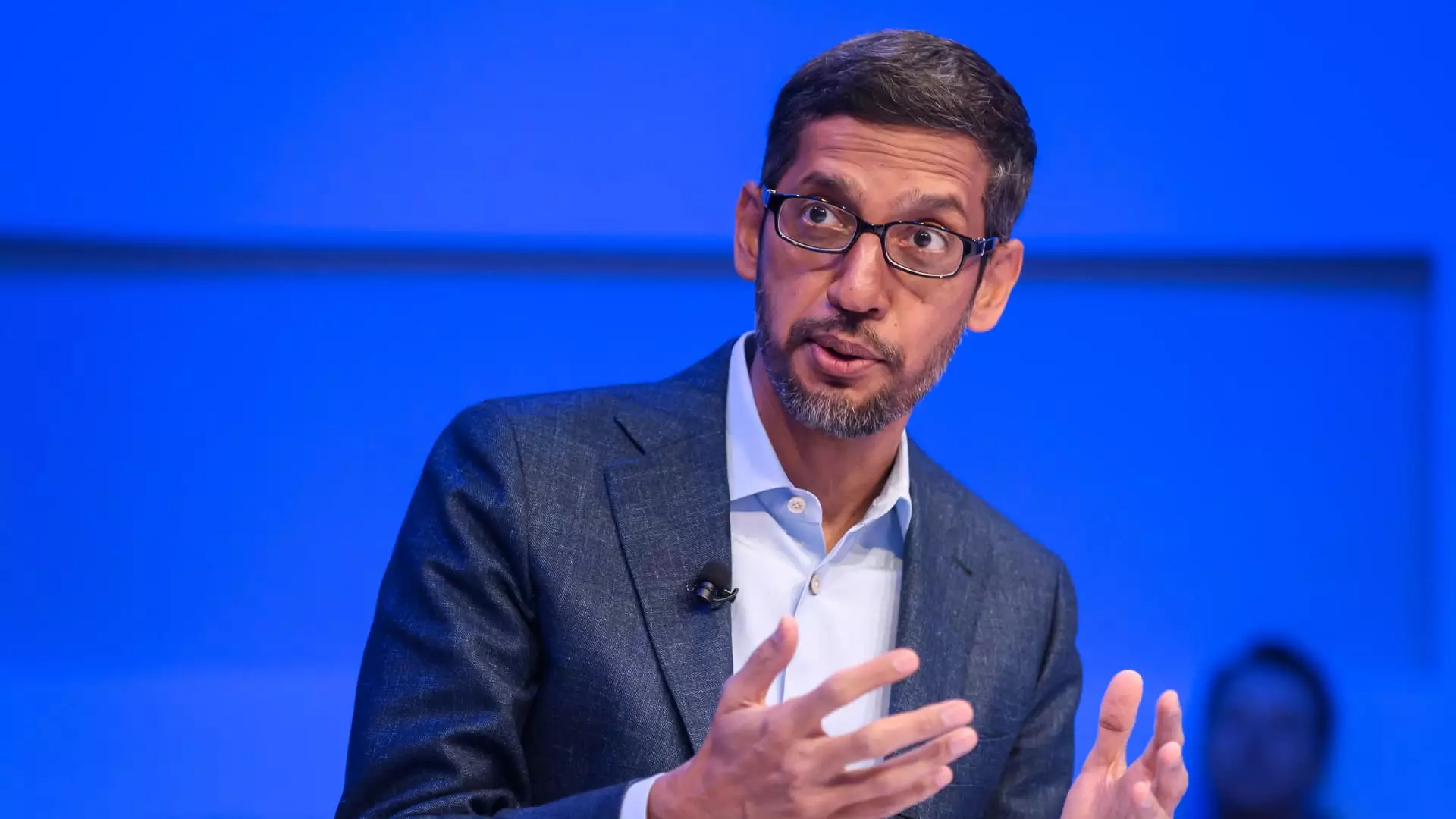In a recent address, Google’s CEO Sundar Pichai emphasized the impending challenges and opportunities awaiting the tech giant in 2025. With growing competitive pressures, rising regulatory scrutiny, and the accelerating pace of advancements in artificial intelligence, the company finds itself at a critical juncture. Pichai aptly communicated that 2025 could be a pivotal year, defining both Google’s future strategy and its operational agility.
The technological ecosystem is rapidly evolving, and Pichai has indicated that Google must sharpen its focus on AI technologies to retain its competitive edge. He noted, “I think it’s really important we internalize the urgency of this moment,” highlighting the need for an urgent response to the fast-approaching landscape changes. It’s a clear indication that Google is not merely reacting; it is gearing up for a fight to reclaim its dominance as AI-driven solutions reshape user expectations and competitive frameworks.
Regulatory Tides: A Scrutinizing Eye
The increasing scrutiny over Google’s market practices is another significant factor influencing its 2025 strategy. Recent legal judgments asserting that Google holds a monopoly over search and proposed divestitures of its Chrome internet browser have raised red flags for stakeholders. Such regulatory pressures complicate Google’s operational environment, compelling it to navigate through a labyrinth of compliance alongside innovation.
Pichai acknowledged, “It comes with our size and success. It’s a part of a broader trend,” emphasizing the challenges of managing corporate growth in an era where technology is scrutinized for its societal impact. He is advocating for vigilance and resilience, urging employees to remain focused on their core mission amidst the distractions posed by regulatory battles. These developments signal a crossroads for Google, where it must balance compliance with the need for technological advancement.
While Google has maintained its dominant share in search, the emergence of new competitors capitalizing on generative AI technologies signals an impending disruption. OpenAI’s ChatGPT created a tremor in the market, establishing standards that consumers now associate with AI. The race for user attention and loyalty has intensified, with competitors like OpenAI and Perplexity attracting substantial investments and attention.
In response, Google is pouring resources into its Gemini AI platform. Pichai expressed optimism about Gemini’s potential, stating, “We need to be relentlessly focused on unlocking the benefits of this technology.” He identified consumer engagement with Gemini as a priority, indicating that 2025 would see significant effort toward scaling this offering to fulfill user needs effectively. Google’s ambition is encapsulated in its goal to achieve substantial user uptake for Gemini, echoing the sentiment that innovation must translate into tangible benefits for consumers.
Innovative Aspirations: AI Development and Future Products
During the strategy meeting, Pichai revealed a vision for expansive AI capabilities, framing Gemini not just as a product but as a platform that can lead to a suite of transformative tools. DeepMind co-founder Demis Hassabis shared insights into the evolution of the Gemini app, indicating a roadmap toward a universal assistant capable of functioning across devices and contexts. This vision resonates with consumers’ desires for seamless interactions in a multi-device world.
The company is not just looking at immediate user satisfaction but also at the long-term evolution of AI technologies. Hassabis mentioned that advancements would increase substantially in the coming years, indicating that Google aims to position itself at the forefront of AI development. However, this ambition comes with the need for feasibility in pricing structures—a challenge that Google currently faces as subscription models gain traction across the industry.
As Google navigates these tumultuous waters, Pichai’s reiteration of the need to “stay scrappy” underscores a cultural shift within the company. The recent reductions in workforce—approximately 6%—reflect a broader push for efficiency and adaptability in operations. In this fast-paced environment, where innovation often thrives under constraints, embracing a scrappy mindset may yield the creative breakthroughs needed to reclaim market leadership.
Referencing the company’s origins, Pichai drew parallels between its founders’ resourcefulness and the current imperative to foster creativity despite constraints. The emphasis on scrappiness may hold the key to overcoming internal challenges and aligning the workforce around a singular mission to tackle the complexities of the evolving marketplace.
Google stands at a decisive moment as it approaches 2025. Pichai’s leadership and the company’s response to competitive threats, regulatory hurdles, and the imperative for innovation will be significantly tested. The upcoming year promises to be transformative, and how Google adapts to the demanding landscape will define its trajectory for years to come.

